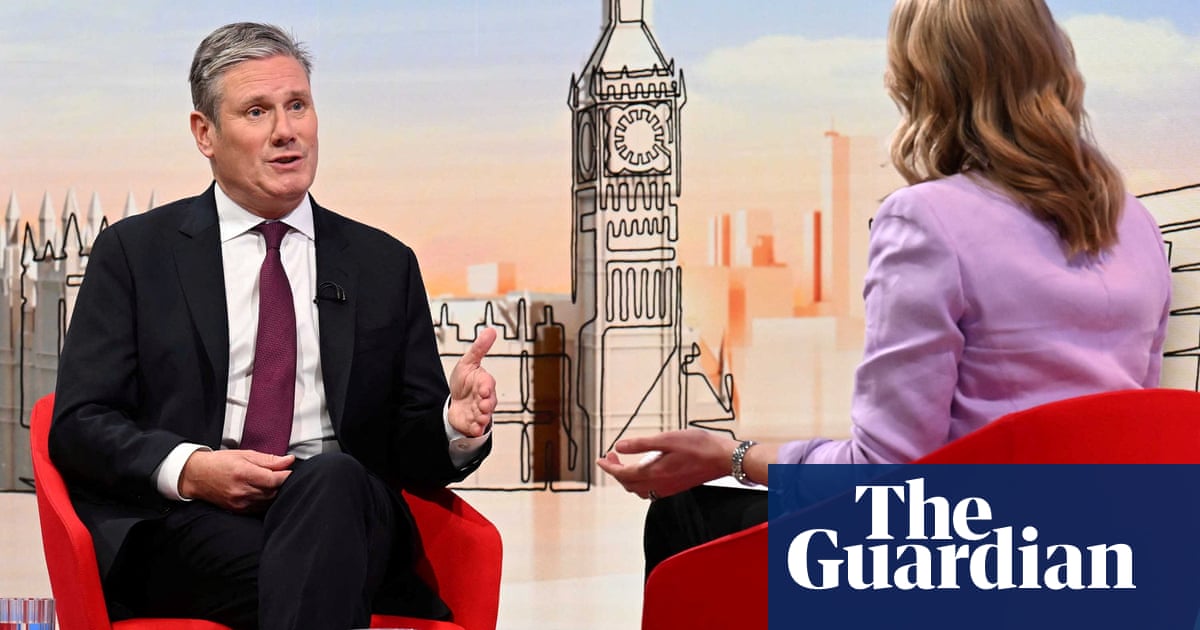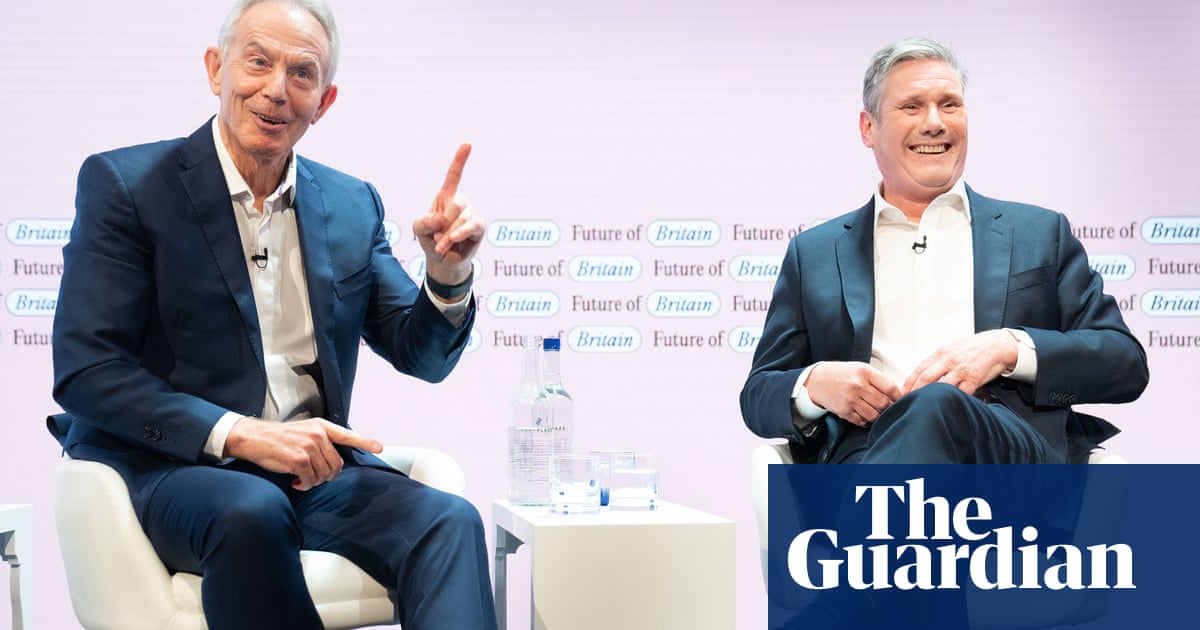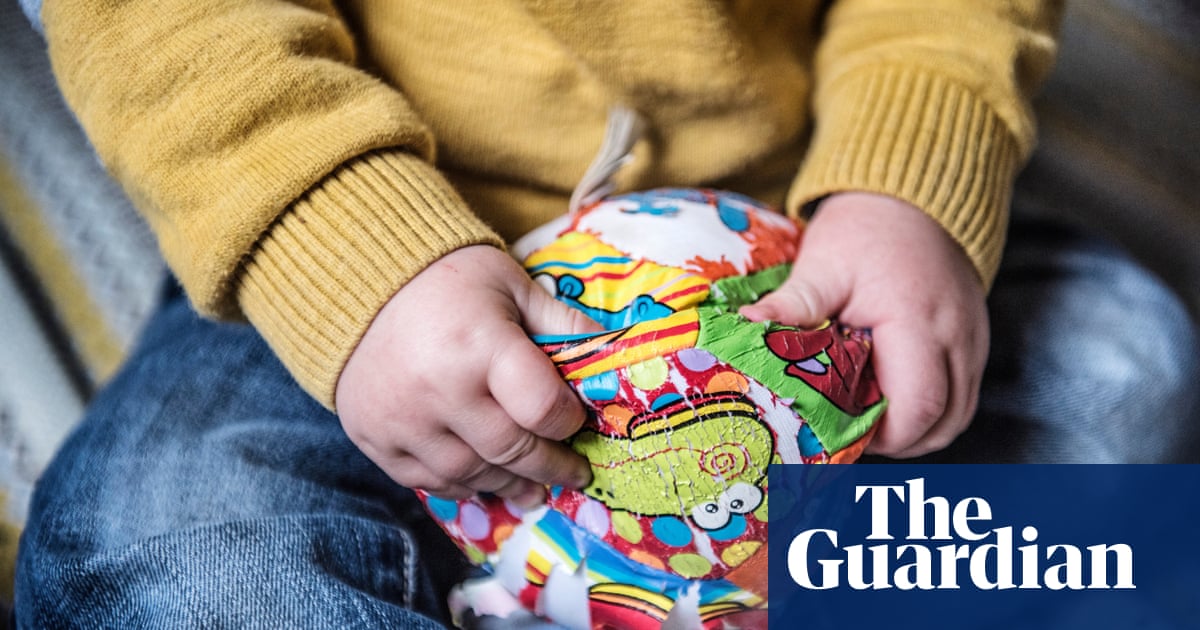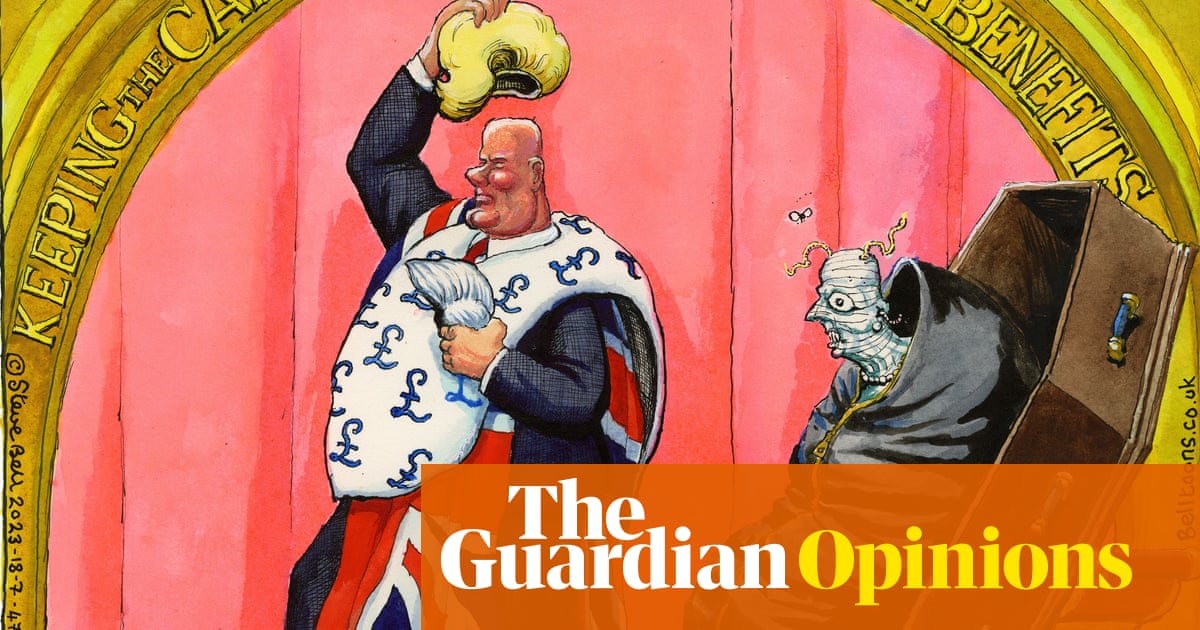
Keir Starmer has indicated for the first time that he will consider scrapping the two-child benefit cap, amid a brewing rebellion by Labour MPs.
The prime minister endorsed comments by Bridget Phillipson, the education secretary, who said that removing the cap was among measures the government would look at as part of a review into child poverty.
It came as the Liberal Democrats added another amendment to the king’s speech that calls for the end of the two-child limit on child benefits, which is likely to be called on Tuesday.
Phillipson told Sky News the government would “consider [lifting the cap] as one of a number of levers in terms of how we make sure we lift children out of poverty”.
Starmer backed Phillipson during a press conference at Farnborough international airshow, saying: “What the education secretary said this morning, I agree with … We will make sure that the strategy covers all the bases to drive down child poverty. No child should grow up in poverty.”
Labour, Scottish National party, Liberal Democrat and some Conservative MPs are expected to criticise the government on the topic during the king’s speech debate over the next two days, with a possible vote if the speaker selects an amendment on Tuesday.
In the debate on Monday, Suella Braverman made a plea for her party to back scrapping the cap. “It’s clear to me from my work with vulnerable families and parents that the cap isn’t working,” the former home secretary said. “The children hardest hit are those under four, and it’s affecting predominantly younger children and those in large families. I believe this cap is aggravating child poverty, and it’s time for it to go now.”
Starmer’s remarks marked a change in tone from the government before an expected rebellion from Labour backbenchers who want to see the cap removed immediately.
Liz Kendall, the work and pensions secretary, held a private briefing for MPs on Monday in which she is said to have underlined that scrapping the measure is under review by the child poverty taskforce announced last week. MPs also expressed anger in the meeting about a briefing to Bloomberg over the weekend in which the row over the cap was described as a “virility test” for the government.
Asked on Monday whether there was a split in his party, Starmer said: “I’m not surprised that there’s a real passion about this in the Labour party.” He said there was “no silver bullet” and child poverty was due to “a complicated set of factors” that required a broader strategy.
Phillipson told broadcasters that scrapping the cap would be among the measures considered by the child poverty taskforce in the coming months, but cautioned that it was among the most expensive of the measures under consideration.
Starmer will face the first key test of his authority in the coming days over Labour’s decision not to scrap the cap immediately.
The Lib Dem amendment is focused on changes to health and social care but includes “scrapping the two child benefit cap”. The party’s increased number of new MPs means it has a higher chance of being selected – but party sources indicated they would vote for other amendments on the same issue.
The chancellor, Rachel Reeves, told the BBC on Sunday that she could not pledge to scrap the cap without saying where the £3bn annual cost was going to come from. “If we’re not able to say where the money is going to come from, we can’t promise to do it. That’s true when it comes to the two-child limit and anything else,” she said.
The Labour MP for Canterbury, Rosie Duffield, wrote in the Sunday Times that the cap, which the then chancellor, George Osborne, introduced in 2017, was “sinister and overtly sexist” and had been her main motivation in standing for parliament.
With a few exceptions, the cap prevents parents from claiming universal credit or child tax credit for a third child. The policy affects 1.6 million children, according to the latest figures from the Department for Work and Pensions.
Many of the charities and organisations consulted by the work and pensions secretary, Liz Kendall, on the taskforce last week have called for the cap to be abolished.
At the press conference, Starmer indicated his government was minded to agree to above-inflation pay rises for teachers and other public sector workers. Independent pay review bodies for teachers and NHS staff have reportedly advised increases of about 5.5%, higher than the current 2% inflation rate.
Asked whether he agreed with remarks from the chancellor that there was a cost to not reaching pay settlements with public sector workers, Starmer said: “Yes, I do, and I think that’s an important consideration.”
He added: “There’s a cost that’s measured in the pounds and pence lost to the economy through industrial action, and there’s a cost to the other work that we need to do in relation to the public services that we need to deliver, and that has to be taken account of as we come to a final decision in relation to pay.”












